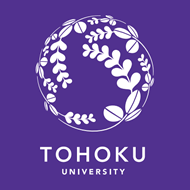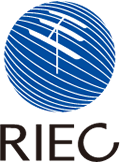
This symposium has ended with great success. We would like to thank all attendees.
(Click here to access group photo)
Scope
The capabilities of computers based on the von-Neumann architecture and the scaling of circuits have become increasingly uncertain in addressing the exponentially growing demand for computers driven by the rapid evolution of artificial intelligence. This has led to growing interest in various kinds of computers based on new operating principles, such as biological and physical systems, as well as emerging devices. The objective of this symposium is to provide an opportunity to discuss the future of computing by a variety of researchers studying unconventional computers. The symposium will be constructed by multidisciplinary sessions consisting of speakers from different fields and focused sessions for silicon technologies, spintronics, and neurobiocomputing.
Topics of interest include:
- Artificial neural networks
- Asynchronous circuits
- Biocomputing
- Brain computer
- Brain imaging
- Brain-machine interfaces
- Cultured neuronal networks
- Computational neuroscience
- Data analysis
- Emerging devices for unconventional computers
- Machine learning
- Neural hardware
- Neurodynamics
- Neuromorphic computing
- Probabilistic computing
- Quantum (simulated quantum) computing
- In/near memory computing
- Real-world computing
- Reinforcement learning
- Reservoir computing
- Spintronics
Confirmed Invited Speakers
- Johan Åkerman
Computing with oscillator or magnon
(Univ. Gothenburg / Tohoku Univ., Sweden / Japan) - William A. Borders
Neural network with MTJs
(NIST, USA) - Kerem Y. Camsari
Probabilistic computing with spintronics
(UC Santa Barbara, USA) - Giorgio Ferrari
Optical computing
(PoliMi, Italy) - Akira Fujimaki
Superconducting computing
(Nagoya Univ., Japan) - Claudia Gomes da Rocha
Neuromorphic computing
(Univ. Calgary, Canada) - Pawel Herman
Computational neuroscience
(KTH Royal Inst. Technol., Sweden) - Yoshihiko Horio
Brainmorphic hardware
(Tohoku Univ., Japan) - Isao H. Inoue
Neuromorphic computing
(AIST, Japan) - Giacomo Indiveri
Neuromorphic engineering
(Univ. Zurich / ETH Zurich, Switzerland) - Shun Kanai
Stochastic MTJs
(Tohoku Univ., Japan) - Andrew Kent
Stochastic dynamics of MTJs for computing
(New York Univ., USA) - Timothée Levi
Neuromorphic engineering
(Univ. Bordeaux, France) - Ming Liu
In/Near memory computing
(Fudan Univ., China) - Alon Loeffler
Biological computing
(Cortical Labs, Australia) - Matthias Lohrmann
Neuromorphic engineering
(SpiNNcloud Systems GmbH, Germany) - Jordi Madrenas
Neuromorphic engineering
(Polytechn. Univ. Catalonia, Spain) - Danijela Markovic
Quantum neuromorphic computing
(Univ. Paris-Saclay, France) - Masoud Mohseni
Quantum-inspired computing
(Hewlett Packard Enterprise, USA) - Theoden Netoff
Biomedical engineering
(Univ. Minnesota, USA) - Wilten Nicola
Computational neuroscience
(Univ. Calgary, Canada) - Javier Orlandi
Computational and systems neuroscience
(Univ. Calgary, Canada) - Byong-Guk Park
Spintronics for PUF and ANN
(KAIST, Korea) - Enrico Prati
Quantum computing
(Univ. Milan, Italy) - Jordi Soriano
Cultured neuronal networks
(Univ. Barcelona, Spain) - Jonathan Sun
Stochastic MTJs
(IBM, USA) - Yoshihisa Yamamoto
Coherent Ising machine
(NTT Research / Stanford Univ., USA) - Hyunsoo Yang
Probabilistic computing with spintronics
(NUS, Singapore) - Guoqiang Yu
Restricted Boltzmann machine with spintronics
(CAS, China)
Important Notice
This symposium will be held in a hybrid format. Oral sessions will be broadcasted live via Zoom Meeting, and participants can choose to join either onsite or online. Poster sessions will be held only at the onsite venue. Poster presenters are required to attend onsite.
Important Dates
- Abstract Submission DeadlineDecember 27th, 2024
- Acceptance Notification*January 10th, 2025
- Non-Author RegistrationJanuary 17th, 2025 (for onsite participants)
- Non-Author RegistrationFebruary 28th, 2025 (for online participants)
- Symposium DatesFebruary 25th - 28th, 2025






